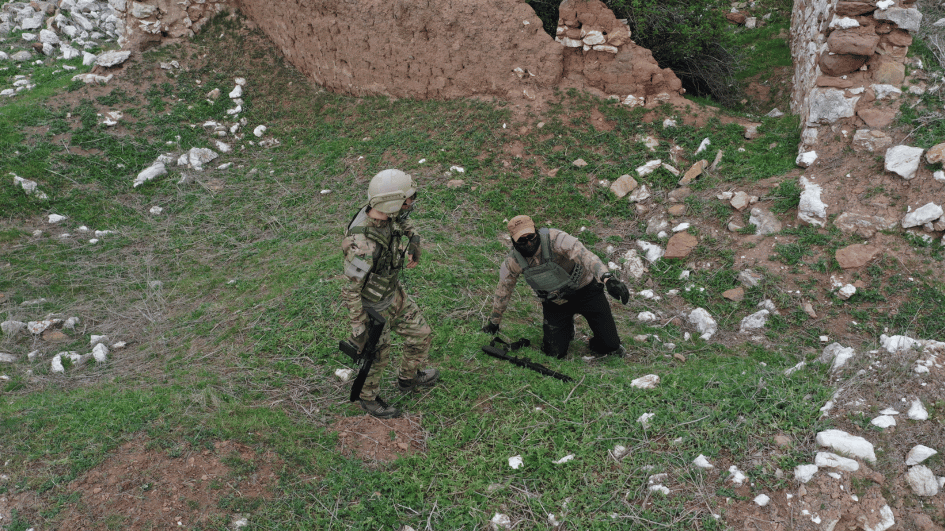Turkey has a point on Iran
ELDAR MEMEDOV
The United Nations Security Council has imposed restrictive measures on Iran over its controversial nuclear program. Some nations, notably the U.S. and the EU countries, have gone further and slapped additional, and more severe, sanctions on Iran. Other actors, such as Turkey, refrained from joining them and followed only what was approved by the UN.For instance, Turkey resumed its gold trade with Iran in March this year, despite pressure from the U.S. to refrain. Turkey imports natural gas from Iran and pays for this in Turkish Liras which are deposited into Iranian accounts in Turkish banks and are then used by the Iranians to buy gold in Turkey. American officials are concerned that these dealings enable Tehran to circumvent the financial sanctions imposed on it by the U.S. and the EU. Ankara responds that it does not feel bound by these sanctions, since it was not consulted when they were designed and implemented. On a more profound level, Turkey simply does not believe that the sanctions are effective in achieving their stated goal of compelling Iran to acquiesce on the nuclear issue. Ankara’s assessment is supported by, among others, the National Iranian-American Council (NIAC), which in a recent report concludes that the financial sanctions have failed to slow Iran´s nuclear program. On the contrary, the escalation of sanctions and the threat of military action only serve as incentives to Iran to advance its program, according to the report.
So a better way forward would be not to condemn Turkey for its approach to Iran, but to initiate a serious strategic dialogue between the U.S., the EU and Turkey on policy options with regard to Iran. Turkey has much to contribute in this respect. In 2010 Turkey, together with Brazil, succeeded in getting Tehran to agree to a confidence-building deal that was broadly in line with the U.S. earlier proposal to Iran. The deal fell apart, because by the time it was reached the Obama administration had secured Russia´s and China´s agreement to a new round of restrictive measures in the UN Security Council. It was a lost opportunity, since not only the deal was destroyed, but also the Turkish-Brazilian avenue through which it was achieved was damaged by the disregard shown by the world powers. But the main gist of that deal still stands: as NIAC President Trita Parsi argued in his bestselling book “A Single Roll of the Dice,” that the kind of patient, discreet diplomacy pursued by the Turks and Brazilians, engaging with all the key Iranian stakeholders, is more likely to elicit Iran´s cooperation than sanctions and threats.
Some of the confidence built between Turkey and Iran in the run-up to the 2010 deal was squandered by the ongoing civil war in Syria, in which the former embraced the rebels fighting president Bashar al-Assad while the latter continued to staunchly support al-Assad. But neither Ankara nor Tehran seem to be willing to break up over Syria. In fact, just recently Turkish President Abdullah Gül stated in the Foreign Affairs magazine that Iran had to be invited to engage with the transition in Syria to prevent further bloodshed. This is a conclusion that Western powers have yet to reach, despite the obvious convergence between Western and Iranian interest in preventing a radical Sunni regime from emerging as successor to al-Assad or jihadist groups gaining a territorial foothold in a disintegrating Syria.
What Turkey and Iran have both in common is their struggling human rights records. Turkey has more journalists in prison than Iran (and any other country in the world), but overall its record is not as bad as Iran´s. But Turkey is reluctant to challenge Iran on human rights. Turkish officials insist that they raise these issues with their Iranian counterparts privately, since doing so publicly would only push Tehran into a corner. This tactic, however, has not been successful. The last report by the UN Special Rapporteur on human rights in Iran points to further deterioration of its already unacceptable record.
In a true dialogue, no one can remain unchanged. It would be a win-win situation if the U.S. and the EU moved closer to the Turkish understanding of diplomacy with Iran, and Turkey showed more sensitivity towards the human rights situation in Iran, all the while improving its own record in this area.
Eldar Mamedov is a political adviser to the Socialists & Democrats Group in the European Parliament, writing here in a personal capacity.











